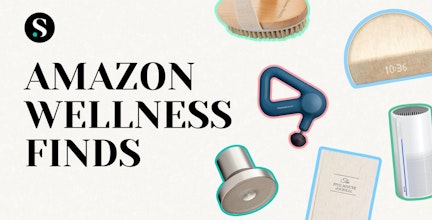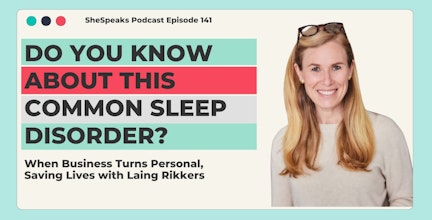Decoding Ingredients: Different Names for Unhealthy Items

Food manufacturers sure don’t make it easy for consumers to shop conscientiously. We have to do homework just to decipher the nutrition labels on the backs of boxes and cans, otherwise they’re just a mess of percentages and multi-syllabic words. Even just trying to avoid certain ingredients is hard enough; manufacturers want you to buy their stuff, so they don’t want to make questionable content too obvious. As a result, ingredient lists on processed foods are long, jumbled, and full of words you’d need a science background to understand. Fortunately, figuring out whether foods have ingredients we don’t want?like MSG, sugar, or trans fat?isn’t as intimidating once we know what to look out for. Unfortunately, considering that something as simple as sugar has over twenty names, we clearly have our work cut out for us.
Monosodium glutamate by any other name is still MSG, an additive that gives food a salty, savory flavor (also known as umami, the fifth taste). You can find it in any number of packaged goods, canned items, and snacks, but you won’t always find it listed as “monosodium glutamate” in the ingredients. If you suffer from MSG symptom complex ?having physical reactions, like headaches, nausea, and heart palpitations?or you just want to avoid suspicious additives altogether, look out for these other names for MSG:
The American Heart Association (AHA) recommends that men and women eat no more than nine and six teaspoons of sugar per day, respectively. However, the AHA also reports that Americans consume about twenty-two teaspoons of sugar a day on average. A good amount of that comes from hidden sugars; that is, sugars in processed foods like crackers and condiments. Sugar falls under many different labels, so it’s all too easy to get your daily sugar quota and then some by not reading ingredient lists carefully:
As of 2008, the FDA requires every food manufacturer to list the amount of trans fats in their products if it exceeds more than .5 grams. While that’s a laudable effort on the FDA’s part, it still means that products can boast “No trans fat!” even when there are trace amounts. Since trans fat consumption is linked to increased risk of heart and cholesterol problems, any amount should be considered unsafe. And since producers can fudge the truth about whether it’s even in food or not, we should be even more vigilant about checking the ingredients:
Do you think you have been unknowingly eating ingredients you’re trying to keep out of your diet?
Originally written by Vicki Santillano for DivineCaroline.com
Make a Comment
 by
Ahyden | LOVELAND, OH
by
Ahyden | LOVELAND, OHThanks for the info!
 by
dfhdhtyi5i5i685 | yhye, OU
by
dfhdhtyi5i5i685 | yhye, OUaccording to what I hear always, MSG is dangerous to someone's health. but the company manufacturing it in my country still insists that it is baseless
 by
NoBrainer | Henderson, NV
by
NoBrainer | Henderson, NVNo matter how hard you try to avoid these 'additives' you're still going to end up ingesting some. All in moderation. Too much of a good thing IS bad for your bodies future. Nice info.
 by
AnnaJane | Lake Charles, LA
by
AnnaJane | Lake Charles, LAIf you can't pronounce an ingredient, it's probably not good for you. :) I love umami, but i do suffer from the MSG symptom complex, so it's all in moderation. Thanks to the author for providing the list of foods that might trigger symptoms in excess--some of those would never have occurred to me as potentially problematic.
 by
MyEmptyCanvas | KOSCIUSKO, MS
by
MyEmptyCanvas | KOSCIUSKO, MSI guess it's to much effort to call products by their regular names, huh? LOL
 by
Bunny26 | LAS VEGAS, NV
by
Bunny26 | LAS VEGAS, NVGreat Info.Thanks for posting this.
 by
Tfurr64 | Fort Smith, AR
by
Tfurr64 | Fort Smith, ARThanks for the list It's like having to learn a new language to read their lists of ingredients. They are so sly and devious in marketing things and defrauding a person anymore
 by
Gin257 | LONG BEACH, NY
by
Gin257 | LONG BEACH, NYvery helpful info. thanks!!
 by
smfultz | Kelso, WA
by
smfultz | Kelso, WAI quit canning years ago, but this is exactly why I have started again. I want to know what is being put into my family's bodies. I can, fortunately, buy meat from family members that raise their own animals, so I know that I'm not getting hormones and chemicals that way. These food producers are sneaky, deceitful, and dangerous! It's time to get hard on them and the easiest way to do that is to not buy their products. Be sure and spread the word about deceptive labeling to your family, friends and anyone else that will listen.
 by
TheMal | LOMBARD, IL
by
TheMal | LOMBARD, ILI'll be looking at this list today when I go to the grocery. Thank you for the information!
 by
vintagepurple | VISALIA, CA
by
vintagepurple | VISALIA, CAi feel you crazilu on the migraines
 by
joy9281 | TOLEDO, OH
by
joy9281 | TOLEDO, OHThanks for the list that is very helpful I try to avoid MSG due to heart problems & high blood pressure. I was not aware of a lot of these names and this will really help me to decide whether to purchase certain items.
 by
crazilu | Lakeport, MI
by
crazilu | Lakeport, MIThis is wonderful info to have. MSG gives me terrible migraines and vertigo and I've for years wondered why some foods "without" the MSG title give me the same results. Not sure why labels have to "hide" so much information on people that can make them sick.
 by
marti3276 | Elma, WA
by
marti3276 | Elma, WAThanks for the article! Another hidden ingredient is gluten, and having celiac disease makes it imperative that I keep a gluten free diet. Because it isn't always clear whether a product is gluten free or not, I mostly rely on homemade products, ie mixes, sauces, etc.
 by
alh2027 | San Antonio, TX
by
alh2027 | San Antonio, TXThank you so much for this article! I have fibromyalgia and have been trying to avoid MSG as well as aspartame (which may cause similar symptoms in people who are sensitive to it). Aspartame isn't too difficult to avoid, especially because products with it are required to have a "contains phenylalanine" warning on the label, but MSG is a lot harder to spot. This list will really help me out.










_01252024061712.jpg?max-w=432&max-h=220&fit=crop&auto=format)

_10242023164832.jpg?max-w=432&max-h=220&fit=crop&auto=format)


_08172023152001.jpg?max-w=432&max-h=220&fit=crop&auto=format)


 (6)_07082023175312.jpg?max-w=432&max-h=220&fit=crop&auto=format)
 (1)_05192023144508.jpg?max-w=432&max-h=220&fit=crop&auto=format)

 (37)_05032023114523.jpg?max-w=432&max-h=220&fit=crop&auto=format)
 (3)_04112023125932.jpg?max-w=432&max-h=220&fit=crop&auto=format)
 (36)_04272023152113.jpg?max-w=432&max-h=220&fit=crop&auto=format)